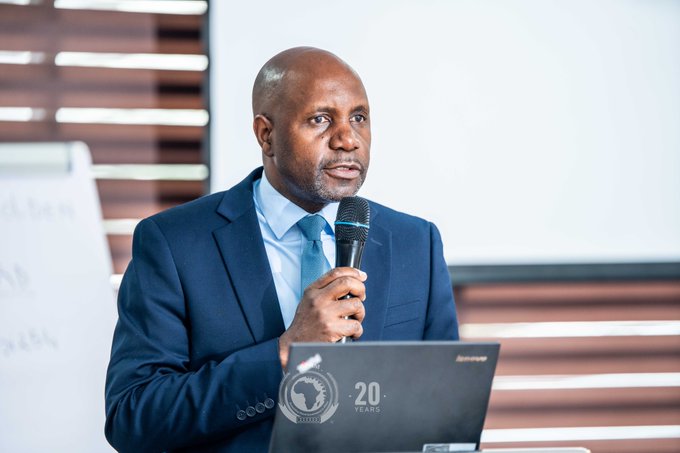|
Getting your Trinity Audio player ready...
|
Writes Baboloki Semele
Nairobi, Kenya: Nearly US$3 trillion is needed to implement Africa’s Nationally Determined Contributions (NDCs). This figure was discussed at the eleventh Conference on Climate Change and African Development (CCDA11) during a session on climate finance, moderated by Harsen Nyambe of the African Union Commission.
There is a substantial financial gap in climate finance in Africa. Yet climate disasters cost between 5 and 15% of GDP each year. According to the United Nations Economic Commission for Africa (ECA), the implementation of African Nationally Determined Contributions (NDCs) requires nearly $3 trillion, including about $2.5 trillion between 2020 and 2030.
With the support of developed countries and the private sector, Africa must take ownership and define its energy transition to meet these challenges. The continent has abundant renewable energy resources, potential for green hydrogen production, essential minerals for renewable energy products, and natural capital for carbon sequestration.
Jean-Paul Adam, at the Office of the Special Advisor on Africa (OSSA) said ECA has worked closely with member states to support the green transition through efforts such as the Sustainable Debt Coalition (SDC), and emerging debt-for-nature swaps to close the financial gap. Africa’s rich marine ecosystem is also at the centre of concern, with initiatives such as the Great Blue Wall, which promotes sustainability and job creation.
Stephen Funso of the African Development Bank (AfDB) stressed that adaptation is a priority for Africa. The AfDB’s approach is to increase resources for priority sectors. According to Stephen Funso, the Bank will continue to strengthen and mobilize resources in each country. To finance resilience, innovative solutions are the key priority to engage the private sector. National Determined Contributions (NDCs) are at the heart of the Paris Agreement, outlining each country’s specific climate action plans and goals. African nations have submitted ambitious NDCs, reflecting their commitment to addressing climate change and contributing to the global effort to limit global warming to well below 2 degrees Celsius.
These NDCs encompass a wide range of actions, including transitioning to clean energy, enhancing resilience in agriculture, protecting forests, and promoting sustainable land management. They represent Africa’s vision for a sustainable, climate-resilient future.
Key Areas Requiring Investment:
Renewable Energy: Africa aims to transition to cleaner energy sources, including solar, wind, and hydropower. Expanding renewable energy capacity requires substantial investments in infrastructure and technology.
Agriculture and Food Security: To enhance resilience in agriculture, investments are needed in sustainable farming practices, drought-resistant crops, and improved irrigation systems.
Natural Resource Management: Protecting and restoring ecosystems, such as forests and wetlands, is vital for carbon sequestration and biodiversity conservation.
Climate-Resilient Infrastructure: African nations must invest in climate-resilient infrastructure, including flood defenses, water management systems, and disaster preparedness.
Technology Transfer and Capacity Building: Enhancing technological capabilities and knowledge sharing are essential components of NDC implementation.
While the financial gap may seem daunting, it also presents an opportunity. Africa is rich in natural assets, including vast renewable energy potential, fertile land, and a young and growing workforce. Leveraging these assets and attracting climate finance can not only help achieve NDCs but also drive sustainable economic growth.
Multilateral organizations, development banks, and climate funds play a pivotal role in closing this funding gap. Leveraging innovative financing mechanisms, such as green bonds and climate-smart investments, can also facilitate the flow of funds to critical projects.
Additionally, international partnerships and cooperation are essential. Collaborations with developed nations, technology transfers, and knowledge sharing can accelerate progress towards NDC implementation.






